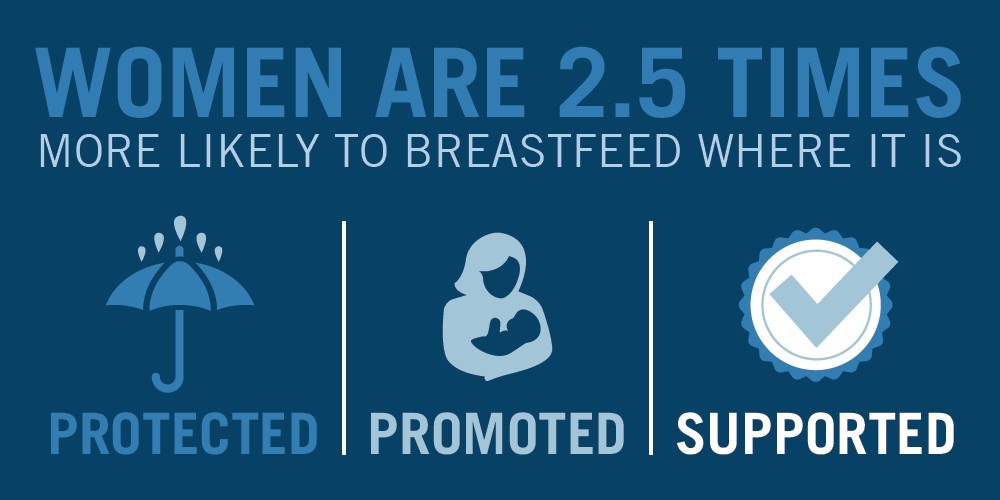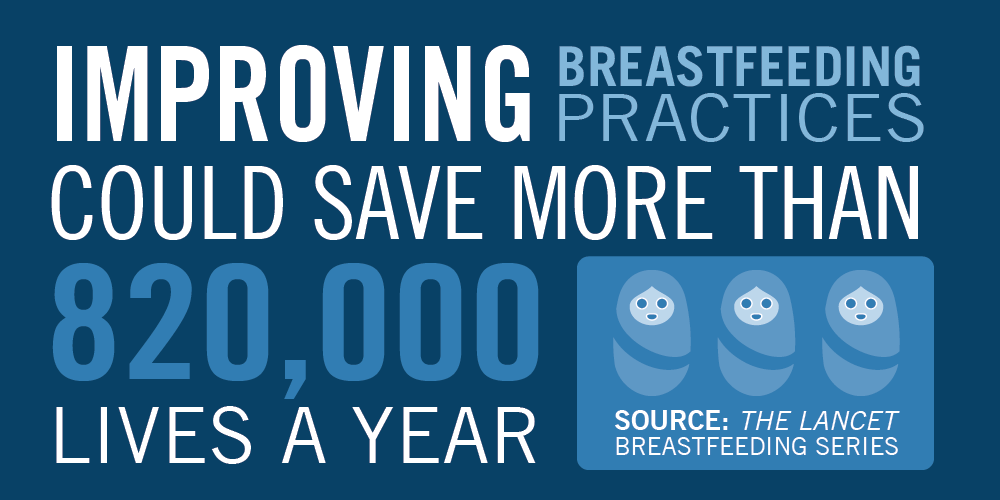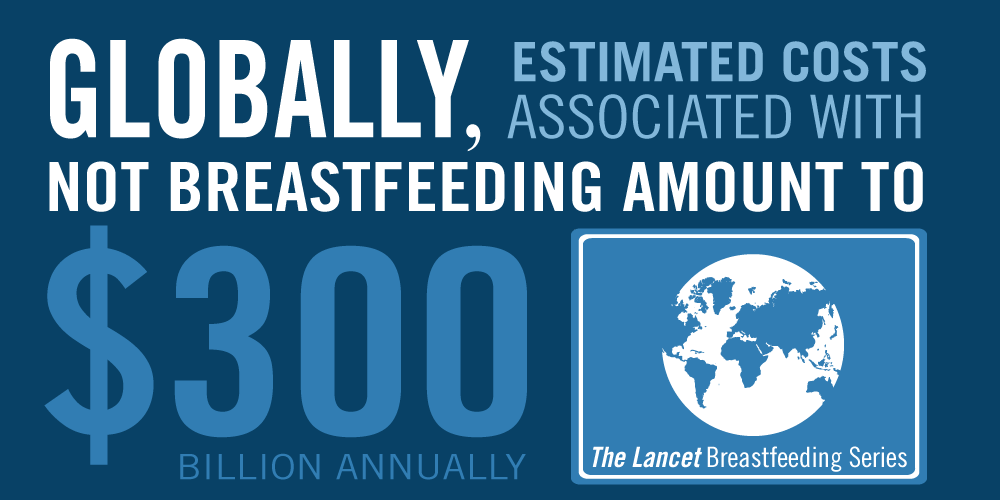The first ever Lancet Series on Breastfeeding is launched
Every mother and child, no matter their location or circumstance, benefits from optimal breastfeeding practices. On 29 January 2016, The Lancet Breastfeeding Series was launched at The Kaiser Family Foundation Conference Center in Washington D.C. The Series is the first of its kind to evaluate global breastfeeding…
 Every mother and child, no matter their location or circumstance, benefits from optimal breastfeeding practices.
Every mother and child, no matter their location or circumstance, benefits from optimal breastfeeding practices.
On 29 January 2016, The Lancet Breastfeeding Series was launched at The Kaiser Family Foundation Conference Center in Washington D.C. The Series is the first of its kind to evaluate global breastfeeding levels, trends and inequalities, in addition to the short and long term consequences for both mother and child, regardless of where they live or their income. The Series underscores the importance of policy interventions to increase and sustain breastfeeding levels.
- Breastfeeding has substantial benefits for children and women in high- and low-income countries alike, and the evidence is now stronger than ever.
- The health and economic benefits of breastfeeding are huge: increasing breastfeeding rates could save hundreds of thousands of lives and add hundreds of billions of dollars to the global economy each year.
- Increasing the rates of breastfeeding worldwide is a fundamental driver in achieving the Sustainable Development Goals by 2030. Breastfeeding plays a significant role in improving nutrition, education, and maternal and child health and survival.
- Rapid progress is possible, and we know what needs to be done—more countries need to invest in the policies and programs that support women’s breastfeeding decisions
The interactive launch event featured presentations of key findings by authors Simon Murch, University of Warwick, Nigel Rollins, World Health Organization and Cesar Victoria, Federal University of Pelotas, Brazil. The event was chaired by Roger Thurow, Chicago Council on Global Affairs and featured a panel of speakers including Susan Desmond-Hellman, CEO of the Bill & Melinda Gates Foundation, Sue Horton, University of Waterloo, Truong Quoc Hung, Deputy Assistant to the President of Vietnam, Werner Schultink, Chief of Nutrition at UNICEF, and Katie Taylor, Deputy Child and Maternal Survival Coordinator at the United States Agency for International Development.
Paper 1: Breastfeeding in the 21st century: epidemiology, mechanisms, and lifelong effect Summary – Full Text – PDF
Paper 2: Why invest, and what it will take to improve breastfeeding practices? Summary – Full-Text – PDF

Click here to watch the webcast.
 Building an enabling environment to scale up breastfeeding
Building an enabling environment to scale up breastfeeding
The Lancet Breastfeeding Series series shows that breastfeeding contributes to a world that is healthier, better educated, more equitable and more environmentally sustainable, yet the relevance of breastfeeding continues to be questioned across society. Women are drawn to substitutes for breastmilk and doubt their own ability to breastfeed. They, their families and health professionals are not fully convinced of the benefits of breastfeeding; breastfeeding in public can generate embarrassment and has even been prohibited, whereas bottle-feeding causes little reaction; the International Code of Marketing of Breastmilk Substitutes is not legislated, monitored and enforced in all countries while industry endeavors to circumvent the Code to protect sales.
A new normal must be created where women are supported in their decisions to breastfeed – at home, work and in the community. Rapid change is possible. Promoting lactation-friendly employment conditions as well as the availability of health services that support women and their families in breastfeeding are particularly important steps to take. The mix of interventions required and the investment needed to implement them will vary by setting; below are six proposed action points, from the Series, for policymakers and program managers, to approach the challenge.
- Disseminate the evidence: Promotion of breastfeeding starts with robust dissemination of evidence on its fundamental role, for both rich and poor societies. Scientists, policymakers, program managers, health workers and communities too often fail to recognize the value of breastfeeding as a powerful intervention for health and development, benefitting children and women alike.
- Foster positive societal attitudes towards breastfeeding: Breastfeeding is generally considered an individual decision and the sole responsibility of a woman to succeed, ignoring the role of society in its support and protection. In an age of expert social marketing and communication innovations, redressing the misperceptions of breastfeeding is paramount.
- Demonstrate political will: Politicians need to value the clear scientific evidence that breastfeeding saves lives and money. Breastfeeding should be mainstreamed into preventive programs for noncommunicable diseases for both children and women, as well as for preventing morbidity and mortality from infections of early childhood. The economic gains provided by breastfeeding should be fully appreciated and evaluated when funding for the promotion and protection of breastfeeding is considered.
- Regulate the BMS industry: Breastmilk substitutes are a multi-billion dollar industry, the marketing of which undermines breastfeeding as the optimal feeding practice in early life. No new interventions are needed; the Code is the effective tool for action. However, much greater political commitment and investment is needed to enact, monitor and enforce the relevant, comprehensive legislation to ensure implementation and accountability.
- Scale up and monitor breastfeeding promotion interventions: It is possible to significantly improve breastfeeding practices using tested interventions. Interventions should be tailored in response to patterns of sub-optimal breastfeeding in each setting and delivered at scale to benefit all mothers and children, and feeding patterns monitored routinely to provide feedback to implementers.
- Enabling interventions: Legislation and accountability mechanisms should ensure that maternity protection and workplace interventions that support breastfeeding are implemented (though these will not reach women who are self-employed or in marginal employment) and that all maternity health services comply with the Code and BFHI.
Learn more at The Lancet
